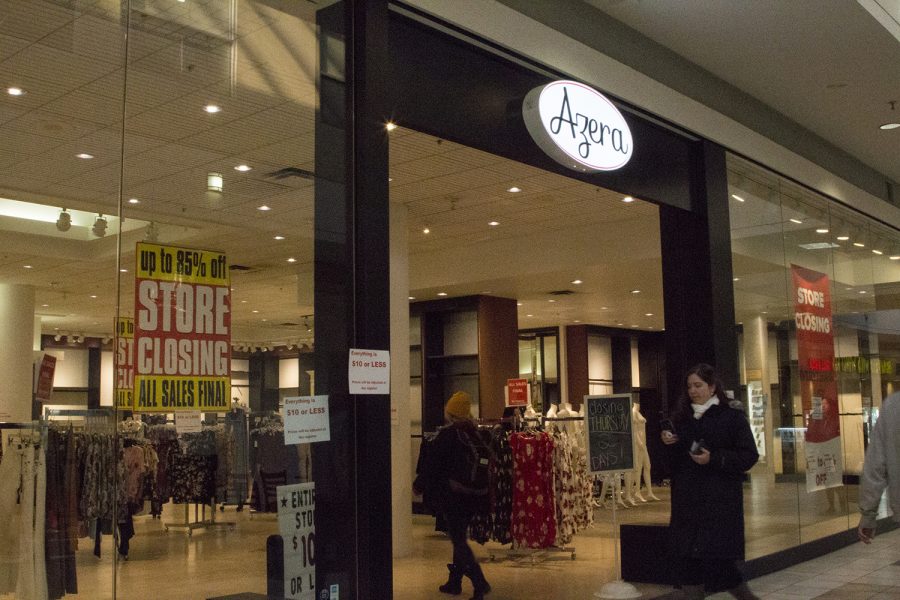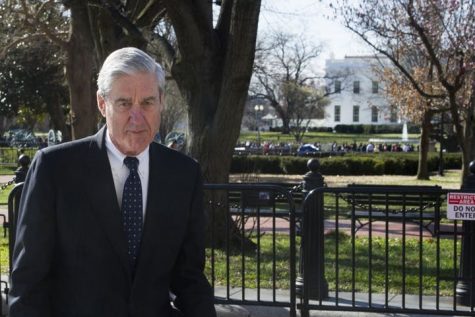Brings Plenty: The death of the American mall will affect our generation
The women’s clothing boutique Azera is seen in the Old Capitol Mall.
March 26, 2019
Over the weekend, I traveled with my parents to Knoxville, Tennessee, to go to a Hot Topic store at the Knoxville Center Mall that was having a closing sale. On our way, we figured that store was the only one that was going to close and that the mall would be somewhat busy. It was a Saturday afternoon, after all.
However, when we arrived at the mall, there was virtually no one there. Many stores had closed, the lights and heat weren’t on, and we were some of the only people in the building. Seeing this was honestly a shock, because most malls are — or at least were — very busy and full of life. This one, however, felt like stepping into a ghost town.
So, what, exactly, causes malls to close down? Most would say it’s because of the huge rise of online shopping replacing traditional retail shopping.
RELATED: Banerjee: Supporting local creatives is important
Online shopping is generally a lot easier than going to a mall or retail store to try to find whatever you’re looking for. You can search for something and have it at your front door within a week. But shopping wasn’t the only reason we went to the mall. In my experience, going to the mall was always a trip. You’d walk around, window-shop, maybe buy something, and go get food from the food court or the cookie stand.
According to Time, analysts estimate that 1-in-4 malls in the U.S. could be out of business by 2022, and observers estimate that there are only 1,100 malls left nationwide. With the mall going by the wayside, what does that mean for our generation?
The main problem with malls closing is that a significant number of jobs are lost. People wind up without jobs as the stores they once worked at shut down left and right. Of course, unemployment is felt when only one storefront closes. It quickly becomes a much bigger deal, however, when an entire mall — or unit of storefronts with a number of employees in each — closes down. This is amplified when several malls close at once. This is when it becomes a problem.
Aside from an employment and economic standpoint, this could affect college and high-school students socially as well. In my experience, going to the mall was an easy way to hang out with friends. It was something almost anyone would enjoy, and there was something for everyone there. Going to the mall was generally an all-day excursion, and it’s a unique social experience.
RELATED: Shaw: It’s time for a gender-inclusive Downtown Iowa City
Overall, malls closing will affect teenagers and young adults. The lack of malls leaves a gap in the places that our age group can safely hang out. Going to the mall could be an hourlong or sometimes most-of-the-day activity. While online shopping is easier now than it has ever been, it also takes away retail jobs and malls in general. And while the death of the American mall might be sad and something of the past, maybe it’s not all bad. Maybe modern retail — which has all moved to online — will show to be better overall than the somewhat outdated concept of malls.
Malls closing down might take away one large source of jobs and easy socializing for young people, but maybe something else even bigger and better might spring up from the ashes of the great old American mall.




















